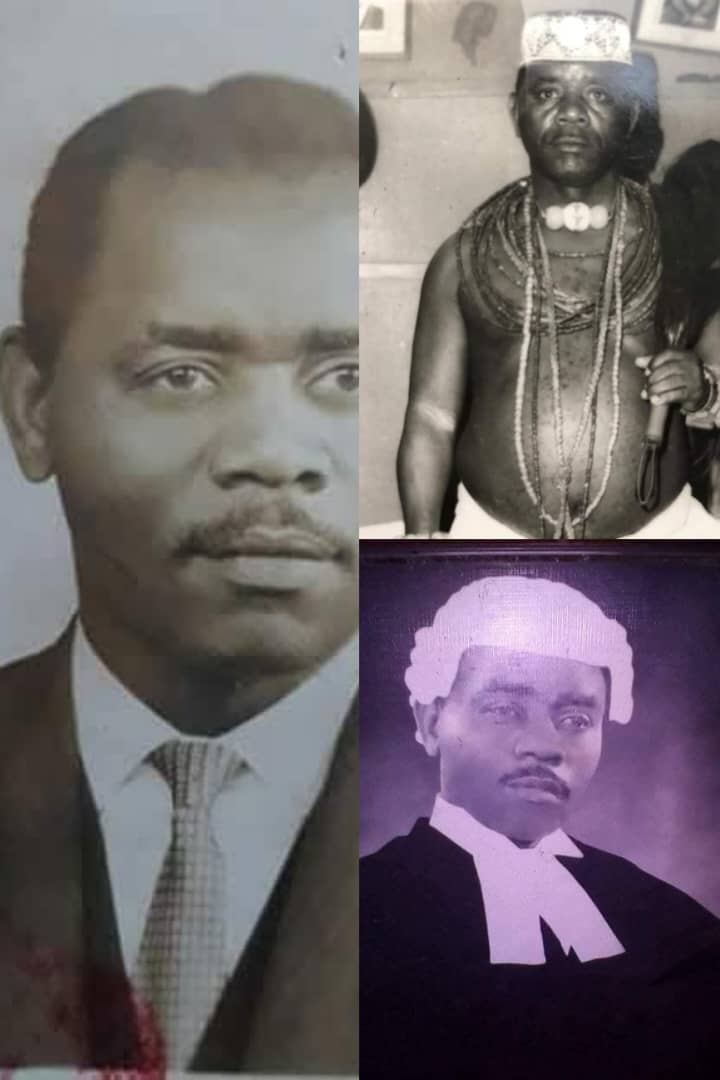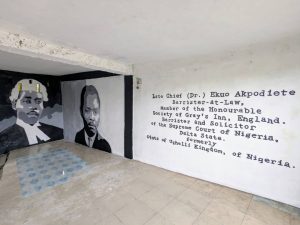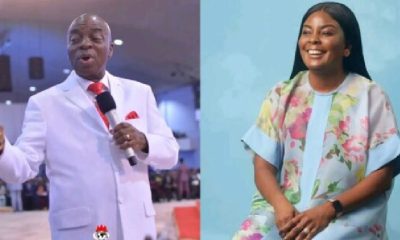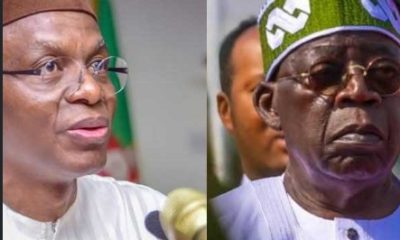Opinion
Satellite to mobile services and connectivity disruption

Sonny Aragba-Akpore
Elon Musk’s ambition to conquer technology and everyday living got a boost early in January 2024 when his SpaceX which owns Starlink satellite communications announced that it was introducing satellite to mobile communications services across the world.
> Its plan primarily was to provide ubiquitous services around the globe and give a run for money to other mobile network operators and telecommunications companies (telcos).
With its communication satellites,Starlink introduced disruptive technologies and with satellite to mobile,the company creates further disruption in telecommunications ecosystem.
> Musk’s foray into Nigeria fetched him six licences with a full bouquet capable of operating in many spheres and first received two licences, out of the six in May 2022 .
These were for International Gateway and the Internet service provider (ISP) licences, and began to trade as Starlink Internet Services Nigeria Ltd.
> According to the Nigerian Communications Commission (NCC), the International Gateway licence has a 10-year tenure, while the ISP licence runs for five years. Both licenses took effect from May 2022 and may be renewed after the expiration.
Starlink came with disruptive technologies that are already making a world of difference for consumers and we looked on as if nothing was happening. The company came prepared.
> With a total of six licenses from the NCC and various permits and approvals to flag off the business of internet services via satellite and equally signing Memorandum of Understanding (MoU) and distribution agreements with Nigerian companies including, Technology Distribution Africa (TD),a big distributor of major technology brands and promoted by a restless technology czar ,Leo Stan Ekeh, Starlink showed it meant business.
The company didn’t stop there ,it decided to take services to even the unserved and under served communities in Nigeria and parts of Africa .
With its technology it said it will deploy nearly $30b over time for the Nigerian operations alone.
> The government is excited that with the entry of Starlink,it may achieve 70% broadband connectivity by 2025 as enshrined in the National Broadband Plan (NBP) 2020–2025.
> Starlink,s six licenses include that for ISP, Gateway Service Provider,international Data Access (IDA),Sales and Installation Major,Gateway Earth Station and Very Small Aperture Terminal (VSAT) thus making it a mega player and a big threat to other players in the industry.
Starlink officially announced its presence in Nigeria in January 2023. The company, which initially quoted its prices in dollars at $600 for the hardware and $43 for the subscription, changed to naira upon its official announcement.
> “Starlink satellites provide Direct to Cell capabilities and ubiquitous access to texting, calling, and browsing wherever subscribers may be on land, lakes, or coastal waters,” it said.
“Direct to Cell works with existing long term evolution ( LTE) or fourth generation (4G ) phones wherever you can see the sky. No changes to hardware, firmware, or special apps are required, providing seamless access to text, voice, and data,” the company added.
In January 2024,Elon Musk’s SpaceX launched its first set of Starlink satellites to provide cell phone service anywhere in the world.
The company announced a milestone the billionaire warned can’t compete with terrestrial networks but will help plug cellular dead zones and boost global mobile connectivity.
> Six of the 21 Starlink satellites launched in January 2024 are capable of connecting directly to cell phones, SpaceX said.
“They are the firm’s first ever direct-to-cell satellites and are designed to function as “a cellphone tower in space,” according to Starlink’s website.
SpaceX said the satellites were first used to test its Direct to Cell service in the United States, where the company has partnered with T-Mobile.
Once activated, the service began to connect with ordinary, unmodified phones without the need for extra equipment so long as they are 4G LTE-compatible, a standard T-Mobile covered the “vast majority of smartphones” already on its network back in 2022.
Starlink said it plans to roll out a text messaging service using the technology later this year and broader voice, data and IoT—the network of connected devices called the internet of things—services in 2025.
Musk celebrated the successful launch and said the satellites “will allow for mobile phone connectivity anywhere on Earth.” However, he noted there are limitations to the technology.
“While this is a great solution for locations with no cellular connectivity, it is not meaningfully competitive with existing terrestrial cellular networks,” Musk said, pointing to the relatively limited bandwidth that is spread over a large area.
Starlink also notes the satellites will let users connect “wherever you can see the sky.”
It has entered a working arrangement with Africa Mobile Networks (AMN) ,a mobile network operator that has deployed services in Nigeria and other countries in Sub-Saharan Africa.
AMN has been deploying rural base stations in Nigeria since 2018.
In 2023, AMN signed a deal with SpaceX to use Starlink’s satellite backhaul connectivity for its remote base stations in Africa.
AMN has connected over 100 rural base stations in Nigeria to Starlink’s Low Earth Orbit (LEO) satellite network. This has resulted in a 45% increase in traffic across these sites.
As at April 2024, AMN owned and operated more than 1,600 base stations nationwide. They increased that number to 2,000 by the end of June.
AMN’s ARN technology allows base stations to support up to five simultaneous carriers.
The combination of AMN’s ARN technology and Starlink backhaul has increased the capacity of Base Transceiver Stations (BTS) without requiring changes to the BTS software.
AMN is privately owned by 18 shareholders, including founders, angel investors, a VC fund, and one strategic investor.
Starlink’s constellation is now providing satellite backhaul to over 100 of Africa Mobile Networks’ rural base stations in Nigeria.
AMN also expects to double the number of base stations plugged into Starlink’s constellation in the country by the end of the year. The operator says on average traffic has increased by 45% across all sites that have been migrated to use Low Earth Orbit (LEO) backhaul.
AMN and Starlink signed a commercial agreement to use the satellites to connect the operator’s mobile network base stations with broadband services in 2023, and in April this year the first base station to do so went live in Yebu, Nigeria.
Since then more than 100 terminals to other rural villages across the country have been hooked up, and AMN says that this means it is ‘able to unlock the full capability of the AMN Radio Node (ARN) to support the ever-increasing amounts of bandwidth and data volumes demanded by subscribers.’
The ARN is a multi-carrier and multi-technology (2G/3G/4G) radio node which can operate up to 5 simultaneous carriers in either 2G+ 3G or 2G+4G configuration, we’re told, and by using LEO backhaul in conjunction with it, AMN says it has been able to increase the BTS capacity remotely with no change to the existing BTS hardware on site.
“These numbers are particularly impressive given that prior to the installation of AMN’s base station, communities did not have access to any mobile network,” explains the release.
“The mobile connectivity AMN provides changes lives. Farmers can find information about market prices, a healthcare provider can consult with doctors in a larger town, money can be sent safely and securely into the village, and businesses can expand beyond their own community.”
Starlink aims to provide satellite internet connectivity to underserved and remote areas worldwide, where internet access has traditionally been limited or non-existent. The global network of Starlink satellites in Low Earth Orbit (LEO) is already providing a new ‘Direct to Cell‘ service to deliver a 4G mobile service to standard Smartphones.
Once the Direct To Cell service is fully up and running, the number of satellites will have increased significantly, and more powerful SpaceX V2 satellites will have been deployed. In essence, users can always access satellite internet service directly from anywhere on earth (if you’re on land, at least – for internet on the ocean, Starlink says it’s offering a dedicated separate maritime service).
The full ‘Direct to Cell’ satellite phone service is set for launch soon and should be compatible with 4G handsets by 2025.
Direct to Cell works with existing LTE phones as well as IoT devices using common LTE standards. Apps and changes to phone hardware or firmware aren’t necessary to access 4G mobile text, voice, and data.
In 2024, only texting will be supported, and a year later voice and data services, as well as IoT functionality, will be added.
The technology aims to extend mobile coverage to areas where traditional cell towers are not present or are ineffective. Unlike traditional mobile networks that rely on a network of cell towers, Direct to Cell connects mobile phones directly to Starlink’s satellites in orbit.
This eliminates the need for ground infrastructure like cell towers in remote areas. It can significantly expand the coverage area of mobile networks, providing connectivity in places that were previously unreachable by standard cellular services. Mobile operators can partner with Starlink to extend coverage without having to build new infrastructure.
Starlink’s satellite network covers the entire globe, which means this technology has the potential to provide universal mobile connectivity, even in the most isolated regions. Starlink satellites with Direct to Cell capability have an advanced eNodeB modem onboard. This acts like a cell phone tower in space, allowing network integration comparable to what a standard roaming partner might provide.
Compared to previous satellite telephone networks, Starlink offers two big advantages: the satellites operate closer to Earth (around 550 km as opposed to as much as 1,400 km) and SpaceX can launch larger satellites. This makes it easier for phones to connect.
However, the precise extent of the service offering and coverage in each region depends on variable such as local regulations, carrier partnerships, and ground stations. SpaceX is looking for cell phone companies to work with on selling the services and is currently already working with T-Mobile (USA), Rogers (Canada), KDDI (Japan), Optus (Australia), One NZ (New Zealand), and Salt (Switzerland).
Opinion
5G,IoT and AI to boost global GDP by 2030

By Sonny Aragba-Akpore
With Mobile technologies and services now generating around 5.8% of global Gross Domestic Product (GDP) a contribution that amounts to about $6.5 trillion of economic value, there are strong projections that by 2030, this figure will rise to almost $11 trillion, or 8.4% of GDP.
Global System of Mobile Communications Association (GSMA) says much of this will be driven by countries around the world increasingly benefiting from the improvements in productivity and efficiency brought about by the increased take-up of mobile services and digital technologies, including 5G, Internet of Things (IoT) and Artificial Intelligence (AI).
The GSMA recently introduced the 5G Connectivity Index to provide insights into 5G performance in 39 markets in order to encourage informed decision-making.
In terms of Economic Impact,
the GSMA emphasizes the economic benefits of mobile technologies and services, including 5G, projecting that they will contribute significantly to GDP growth by 2030.
“The GSMA provides specific reports and analyses on 5G in different regions, such as Sub-Saharan Africa, Asia ,Middle East among others highlighting the progress and challenges of 5G deployment in specific areas.”
In Sub Saharan Africa for instance with particular attention on Nigeria,South Africa,Egypt,Kenya and Botswana among others some measure of progress in deployment has been recorded.
The rollout of 5G has brought immense benefits across multiple industry sectors, particularly those involving internet of things (IoT) and artificial intelligence (AI) applications in which the real-time transfer of data is crucial.
More broadly, the adoption of 5G is expected to accompany increased data use across the globe, with forecasts anticipating mobile data traffic of over 300 exabytes per month by 2030, more than twice the volume consumed in 2024 according to Statista.
And with a third of global population expected to be covered by this fifth generation (5G) networks ,a technology that has defined new ways of communication by 2025 ,GSMA
says the technology has surpassed growth projections of all times.
“5G subscriptions increased by 163 million during the third quarter 2024 to total 2.1 billion. 5G subscriptions reached close to 2.3 billion by the end of 2024 accounting for more than 25 percent of all global mobile subscriptions.
“4G subscriptions continue to decline as subscribers migrate to 5G” according to GSMA.
As of the first quarter of 2024, there were nearly two billion 5G connections worldwide, with 185 million new additions. This is expected to grow to 7.7 billion by 2028.”
Statistics show that 5G is the fastest-growing mobile broadband technology, reaching 1.5 billion connections by the end of 2023.
It only took four years to reach this number, compared to 10 years for 3G and more than five years for 4G.
“5G is more than a new generation of technologies; it denotes a new era in which connectivity will become increasingly fluid and flexible.5G Networks will adapt to applications and performance will be tailored precisely to the needs of the user” GSMA submits.
By covering one-third of the world’s population , impact on the mobile industry and its customers will be profound according to GSMA.
To deepen the spread of 5G ,GSMA is working closely with the mobile operators pioneering 5G, “by engaging with governments, vertical industries including automotive, financial services, healthcare providers, transport operators, utilities and other industry sectors to develop business cases for 5G.”
And In order to accelerate the growth and spread, many operators are said to be deploying
AI technology as part of an integral part of telecoms operators’ strategic and operational plans.
“Operators are making important advancements in the deployment of AI technology, which is serving as a transformative force shaping the telecoms industry. By deploying autonomous AI-based systems, operators can enhance operational efficiency, customer satisfaction and security, while also creating new revenue opportunities”.
China, South Korea, the United Kingdom, Germany, and the United States are the leading countries with robust 5G coverage in the world.
Since the first commercial launches of the fifth generation of mobile networks in late 2018, these five countries have emerged as leaders because multiple companies in these countries have deployed networks and are selling compatible devices. Countries including Switzerland and Finland are up and comers in 5G development, though they have limited deployment.
In China there are three Companies leading in deployment.
The world’s largest 5G network was launched by the three largest Chinese network operators Oct 31, 2019, according to the state-run news agency Xinhua. These are China Mobile, China Unicom, and China Telecom which all activated their networks in less than five months after they were issued 5G licenses.
Each of the network operators offered their 5G services at $18 per month in 50 Chinese cities at the beginning of the launch.
GSMA expects 36% of China’s mobile users to be using 5G by 2025. That’s about 600 million subscribers, who would also make up 40% of the entire global 5G market by this year.
This is all despite efforts made by the United States government to hamper the progress of Chinese vendors, though those efforts may affect how Chinese companies may expand into the global market.
In South Korea,SK Telecom and Korea Telecom run as the main competitors for the South Korean 5G market.
SK Telecom acquired spectrum in the 3.5 GHz and 28 GHz frequencies to prepare for deploying 5G.
In April of 2019, the Enterprise claimed to be the first mobile carrier in the world to launch 5G services to work on 5G smartphones. SK Telecom asserted an edge over rival Verizon, as the former launched 5G services available at the same time as Samsung Galaxy S10 5G smartphone launched in South Korea. Verizon launched mobile 5G services in the U.S. before a 5G enabled smartphone was available to U.S. consumers.
SK Telecom also conducted tests with a 5G Standalone (SA) Core (a core not reliant on the 4G network) for their 5G network in cooperation with Samsung Electronics.
The world’s largest 5G network was launched by the three largest Chinese network operators Oct 31, 2019, according to the state-run news agency Xinhua. These are China Mobile, China Unicom, and China Telecom which all activated their networks in less than five months after they were issued 5G licenses. Each of the network operators offered their 5G services at $18 per month in 50 Chinese cities at the beginning of the launch.
“What we are seeing is a concerted effort by the Chinese — the operators, vendors, and government regulators — to deploy 5G as quickly as possible,” Chris Nicoll, principal analyst at ACG Research, pointed this out in a November 1, 2019 SDxCentral article.
With all of these players working together, the three network operators had collectively deployed nearly 86,000 5G base stations peaked over 130,000 by the end of 2019. The latter number breaks down into China Unicom and China telecom, with each planning to install 40,000 base stations, and the market leader China Mobile to install 50,000.This was the projection by 2019 but they have since overshot this by the beginning of 2024.
The International Telecommunication Union (ITU), says 5G coverage reached 40% of the world’s population in 2023 with an uneven coverage and distribution with developed countries having more coverage than low-income countries:
In Europe ,68% of the population is covered and
Americas had 59% of the population covered while
Asia-Pacific has 42% of the population covered as at 2023.
Arab States have 12% of the population covered.
Commonwealth Independent of States (CIS) had 8% of the population covered.
ITU figures show Africa,s coverage rose to 10 % of the population by 2023 .
The ITU also notes that 90% of the world’s population is covered by 4G, but 55% of people without access to 4G live in low-income countries because In low-income countries, 3G is often the only technology available to connect to the Internet.
The ITU develops and adopts international regulations and global standards to enable the harmonization and implementation of broadband mobile networks.
In Africa, around a dozen nations have launched services including Botswana, Kenya, Mauritius, Madagascar, Nigeria, Seychelles, South Africa, Tanzania, Togo, Zimbabwe, and Zambia but Africa is a patchwork of 54 countries.
And penetration is predicted to be slow.
By 2027, Ericsson predicts that 80 percent of phone users in Europe will have 5G service.
At the same time, 5G subscriptions in Africa, home to 1.4 billion people, May stagnate at a little over 10 percent. Why will so few people in Africa get access to 5G services?
China, South Korea, the United Kingdom, Germany, and the United States remain the leading countries with robust 5G coverage in the world.
While many countries are already providing robust services,Africa remains on the outskirts of 5G services.
The countries in Africa that have launched 5G networks, include South Africa with its roll out
In March 2022, when the Independent Communications Authority of South Africa (ICASA) sold spectrum across several bands.
In Nigeria,MTN rolled out commercial 5G services in Lagos in 2022, with other roll out in Abuja, Port Harcourt, Ibadan, Kano, Owerri, and Maiduguri among others.
MTN Congo announced that it was the first country in Central Africa to deploy 5G.
In Botswana Orange deployed 5G technology to provide new services in the Gaborone and Francistown regions.
Other countries in Africa that have launched 5G Fixed Wireless Access (FWA) services include: Angola, Kenya, Zambia, and Zimbabwe.
Analysts say “5G’s potential is growing due to its ability to deliver fiber-like speeds. However, there are still challenges in the region, such as:
Urban areas are reaching their maximum capacity whereas a large portion of the population lives in rural areas.
This explains why 5G adoption in the sub-Saharan region is currently below six percent “
Analysts report that 5G deployment in Africa faces many challenges, including Spectrum assignment,regulatory issues,infrastructure,security,financial resources among others.
“Spectrum is a limited resource that is already in use by other services, such as TV broadcasters and satellite operators. Governments need to open up frequencies and grant 5G licenses at reasonable prices. “
Infrastructure is another major challenge.
“5G networks require a large initial investment, including expensive devices, antennas, and Radio Access Network (RAN) hardware. The infrastructure needs to be fiberized to support 5G services.
Regulatory conditions also serve as challenges to deployment.
For instance “regulatory authorities may not have started the process for licensing and granting frequencies in the right portion “
“Most of the equipment and devices required for 5G deployment need to be imported.”
There are also security challenges that make
5G technology vulnerable to cyber security threats, such as tracking calls and exposing user locations.
Opinion
Right of Reply: THE PUNCH AND BUSYBODY BUSINESS

The recent declaration of a State of Emergency in Rivers State has triggered diverse commentaries from a wide range of Nigerians.
Almost everyone hailed the presidential proclamation because of the visible threat to law and order in the state at the time the action was taken. Of course, there were a few naysayers who read political meanings into an otherwise sincere and prompt intervention.
One such negative interpretation is the position taken by the Editorial Board of The Punch newspaper. In one of its editorials published on the matter, the national daily claimed that the entire crisis was caused by what it described as “the needless meddlesomeness in the governance of the state by its former governor and Tinubu’s Federal Capital Territory Minister, Nyesom Wike….” It is unfortunate that this narrative and others like it have become commonplace in the media space.
How did the Editorial Board of a reputable newspaper arrive at such a conclusion? Their claim that the Sole Administrator, Admiral Ibok Ete Ibas (rtd), has been acting a script purportedly written by the Minister of the Federal Capital Territory, Nyesom Wike, is also faulty and has no iota of truth.
They also faulted the sacking of all political appointees who served in Governor Siminalayi Fubara’s administration, insinuating that their replacements were drawn from Wike’s political camp. Again, nothing can be further from the truth.
Since his appointment as the Sole Administrator of Rivers State, Admiral Ibok Ete Ibas has been running the state with the abundant human resources available in the state and has not imported anybody from outside the state. Did the Editors of The Punch really expect him to run the administration with the politicians loyal to the suspended governor?
Do they not know that the crop of political appointees who served Fubara would have found it difficult to work with the Sole Administrator?
Certainly, they know the truth, but they have chosen to stoke the fire to generate more tensions in Rivers State.
Certain interests might have commissioned this editorial to cast aspersions on the Sole Administrator and raise doubts about his capacity to run the state.
It may also have been the handiwork of Wike’s political detractors, the man whom many politicians love to hate for no other reason than envy and jealousy.
We urge the Punch newspapers to seek a better mode of intervention in the political situation and not dwell on innuendos and unsubstantiated allegations against certain political actors in order to blackmail them.
Dr Ike Odogwu
Opinion
“Chief. Dr. Ekuogbe Akpodiete; A Philanthropist, Lawyer, and Statesman”


In a life of achievement, Chief Ekuogbe Akpodiete popularly called the Duke by his contemporaries in the UK was an assessment clerk, post office clerk, a court interpreter, an educationist, a business man, a political party chieftain, a Barrister and Solicitor, a Magistrate, the Otota (the Prime Minister) of Ughelli kingdom which is the highest traditional chieftaincy office that underpin the royal office of the Ovie of Ughelli Kingdom.
He was a trail blazer, a strict disciplinarian, a lover of people, and a philantropist. He saw to it that people lived in peace and happiness.
Born on the 4th of April, 1924, to parents cut from an industrious mould, Chief Ekuogbe Rowland Gregory Akpodiete took zealously to education that neither his mother Ughweriaka who was a trader, nor his father Akpodiete who was a farmer had.
He attended the Native Authority Primary School, Ughelli, and Enitona High School, Port Harcourt, for his secondary school education.
He thereafter had a brief teaching career in primary schools in Ofuoma near Ughelli, he worked as a process clerk in the then Sapele Township Department between 1950 and 1953, serving at the same time as an interpreter in the local courts.
He proceeded to the United Kingdom to seek the proverbial Golden Fleece where he worked and paid his way through, studying Law. He was admitted into the Honourable society of Gray’s Inn, England, in 1965, and shortly after, he returned home to Nigeria and attended the Nigerian Law School. He was called to the Nigerian Bar in 1966. He immediately started practice in Lagos. However, his practice in Lagos was regrettably abridged by the Nigerian Civil War, which drove him to his hometown Ughelli in 1967, where he continued to practise among his kith and kin as the first Legal Practitioner.
Chief Ekuogbe Akpodiete established himself in Ughelli. After the civil war, he served in the now defunct Mid-western State Judiciary from 1972 to 1975 as a Magistrate.
He was conferred with the chieftaincy title of Urhukperovie of Ughelli kingdom (the light of the King) by the then reigning Ovie of Ughelli, His Royal Highness Oharisi II of blessed memory in 1977.
In the quest for more knowledge, he went back to England for his Master’s degree in law (LL.M) and later a Ph.D. at the University of Warwick.
He was awarded an honourary doctorate degree (Ph.D) by Tenesse Christian University from the United States of America in 1991.
He became the Otota (the Prime Minister) of Ughelli Kingdom in 1986, an office he occupied until his demise on 9th April 1995.
Chief Ekuogbe Akpodiete was also politically involved. In the heady days of the Awolowo-led Unity Party of Nigeria, he was the party’s legal adviser in Ughelli and was on hand to assist during Chief Obafemi Awolowo’s campaign hosting in Ughelli and its environs.
In view of his love for people and entertainment, he established a popular cinema house, one of the first in Ughelli, known as REGA cinema, coined from his names, alongside an entertainment place called Unutakunu (people talk to people).
Chief Ekuogbe Akpodiete was blessed with wives and many children, grandchildren, and great grand children.
Mr. Olotu Akpodiete, PhD
Executive Director
Olotu & Ekuogbe Rowland Akpodiete foundation
-

 News5 hours ago
News5 hours agoBREAKING: Unknown gunmen reportedly storm Senator Natasha’s family residence
-

 News14 hours ago
News14 hours ago“How my father escaped assassination” – Bishop Oyedepo’s daughter
-

 News8 hours ago
News8 hours agoSnub story on removal of Rivers Sole Administrator, it’s FAKE-Chief Registrar
-

 News14 hours ago
News14 hours agoFG expresses sympathy for CBEX victims, urges a united effort to combat Ponzi schemes
-

 News7 hours ago
News7 hours agoSAD! Again, Alleged Herdsmen Attack Three Benue Communities
-

 News20 hours ago
News20 hours agoEl-Rufai labels Tinubu’s government ‘worst in Nigeria’s history’
-

 News14 hours ago
News14 hours agoWoman tragically lost her life after attempting to flee through glass door during alleged incident of domestic violence
-

 Politics7 hours ago
Politics7 hours agoPDP govs are jokers, can’t stop coalition train, Atiku boasts






